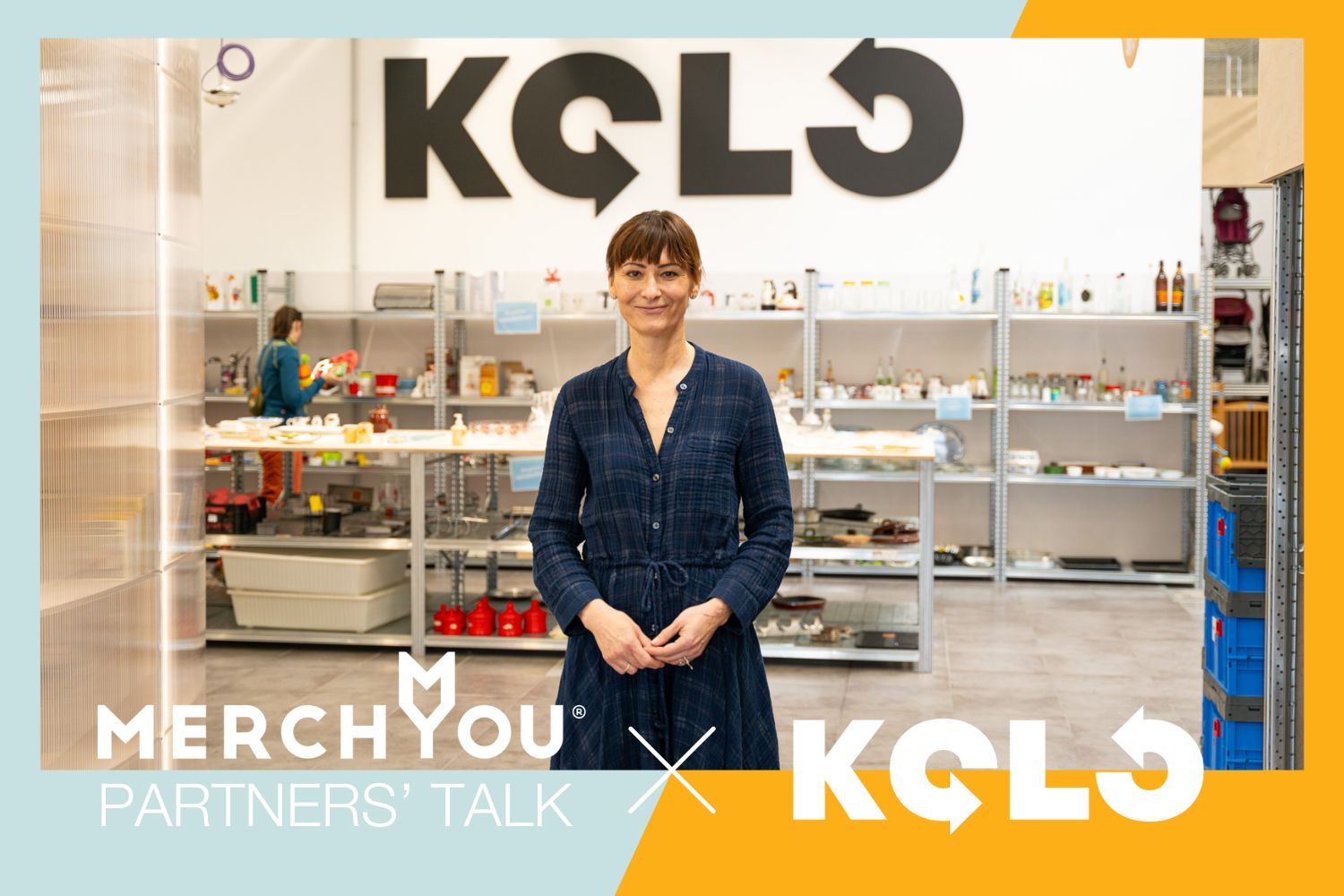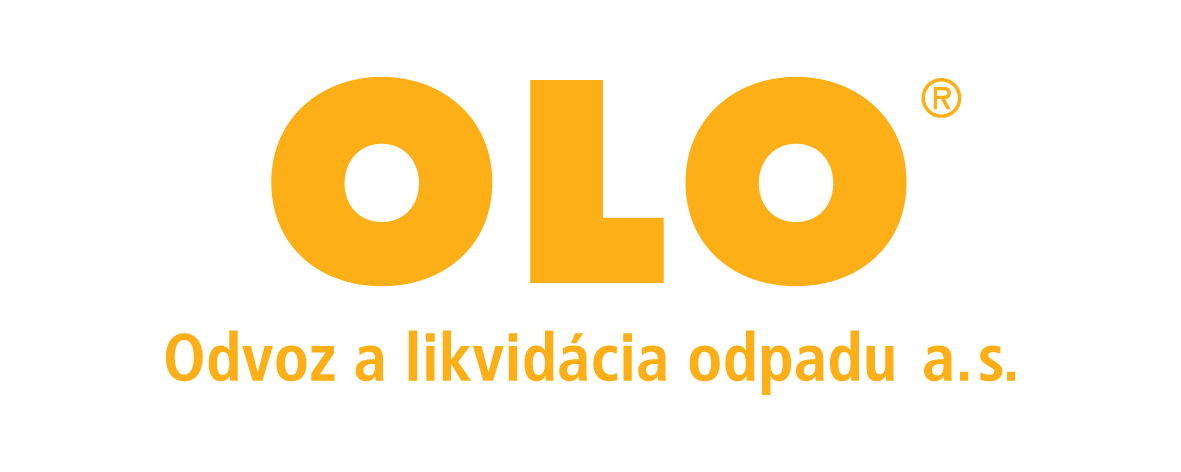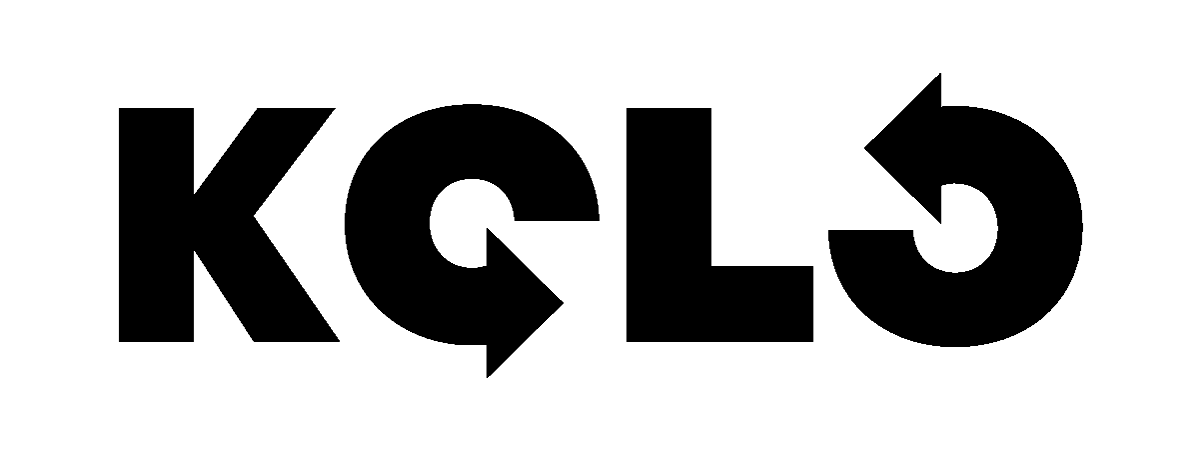Partners' talk - KOLO
The so-called KOLO is a place that can give items a second chance at life. The so-called MERCHYOU deadstock textiles are textiles that have been in our warehouse for a long time, they are new and undamaged, but do not have their owner. Why did our textiles end up in KOLO for a one day special event?

MERCHYOU Partners' talk are interviews with our partners, with whom we either cooperate for many years or are united by other common goals and interests. This time we interviewed Martina Čechová from KOLO - Bratislava Re-use centre. On Saturday March 16, at KOLO we launched a unique event together for the first time. At our special sale you could buy our deadstock textiles in pieces and print it with a design by OLO. Why did we choose KOLO for this collaboration? And what exactly is KOLO? You can learn more in our interview with Martina Čechová, a circular economy manager for KOLO.
What is the purpose of KOLO and how did the idea come about?
KOLO is the Bratislava re-use centre - the largest urban re-use centre in Slovakia. KOLO aims to minimize waste, promote circular economy in Bratislava and create an educational and creative space for all those who care about the environment.
The idea came from the Capital City Municipality, KOLO is one of the fulfilled objectives of the Capital City Strategy in the field of transition to a circular economy.
What was your personal journey to KOLO?
I came across KOLO quite unplanned along the way, I started as a project manager when it was being set up and luckily it "stayed with me" after that. 😊
Which items are welcome in KOLO and which ones you can't accept. If you can't then why?
At KOLO we accept a lot of usable, preserved and functional items, suitable for reuse especially from the household. Everything from glass, porcelain, kitchenware, decorations, paintings, books, toys, sporting goods, pet supplies, CDs, DVDs, LPs, furniture, we started with the first category of electrical appliances- lamps that have an electrical cord. In particular, we do not accept textile, footwear, upholstered furniture, drugs and chemicals.
If we look at KOLO in numbers, can you please tell us how many kilograms of unwanted items you collect per month and how many items leave your hands to new owners?
Monthly, visitors bring us about 15 tons of usable items, of which about 70% find a new owner.
Last Saturday, March 16th, we organized a printing workshop together with the sale of our deadstock textiles. How do you evaluate our event in retrospect? Will visitors be able to look forward to a similar one in the near future? And why is it that textile is not commonly found at KOLO, anyway?
It was a great event that brought together our common goals- to give a second chance to things that deserve it. 😊 I believe we will come up with something together in the near future. However, we do not accept textile directly at KOLO due to capacity and hygiene reasons. What we do do seasonally, however, are things like Textile Swaps. The next one will be in the month of June.
There is a rumour going around the world that you will open a new store this spring. Where can we look forward to it and how will you manage to oversee two projects? Will you be splitting forces with someone new?
The world is spreading the right information, already in the spring months we will open another KOLO - in Karlova Ves on Juriga Square, which already serves as a collection point. We believe that even though it will be smaller in space, it has the potential to become a great, local re-use centre. 😊
I think we have the strength in our team for both projects, we are already looking forward to the new KOLO.
We are very happy that we had the opportunity to work with you at KOLO in the form of a workshop. However, we know that this is not your only workshop. Do you organize them regularly, what kind of workshops or other activities do people mostly come to you for?
Apart from the educational workshops for schools- kids from preschoolers to high school seniors that we organize at KOLO, we also try to do community events- especially on Saturdays. We recently had a small Valentine's Day workshop, we'll be planting edible balconies in May, and we're also planning programs like sewing classes and bike repair. So a little bit of everything. We would be happy if our visitors, besides getting second-hand items, would have the opportunity to choose from a lot of interesting activities in sustainability, and environmental protection and creation.



